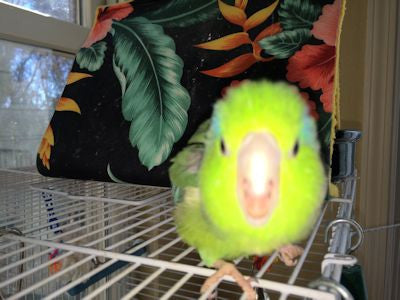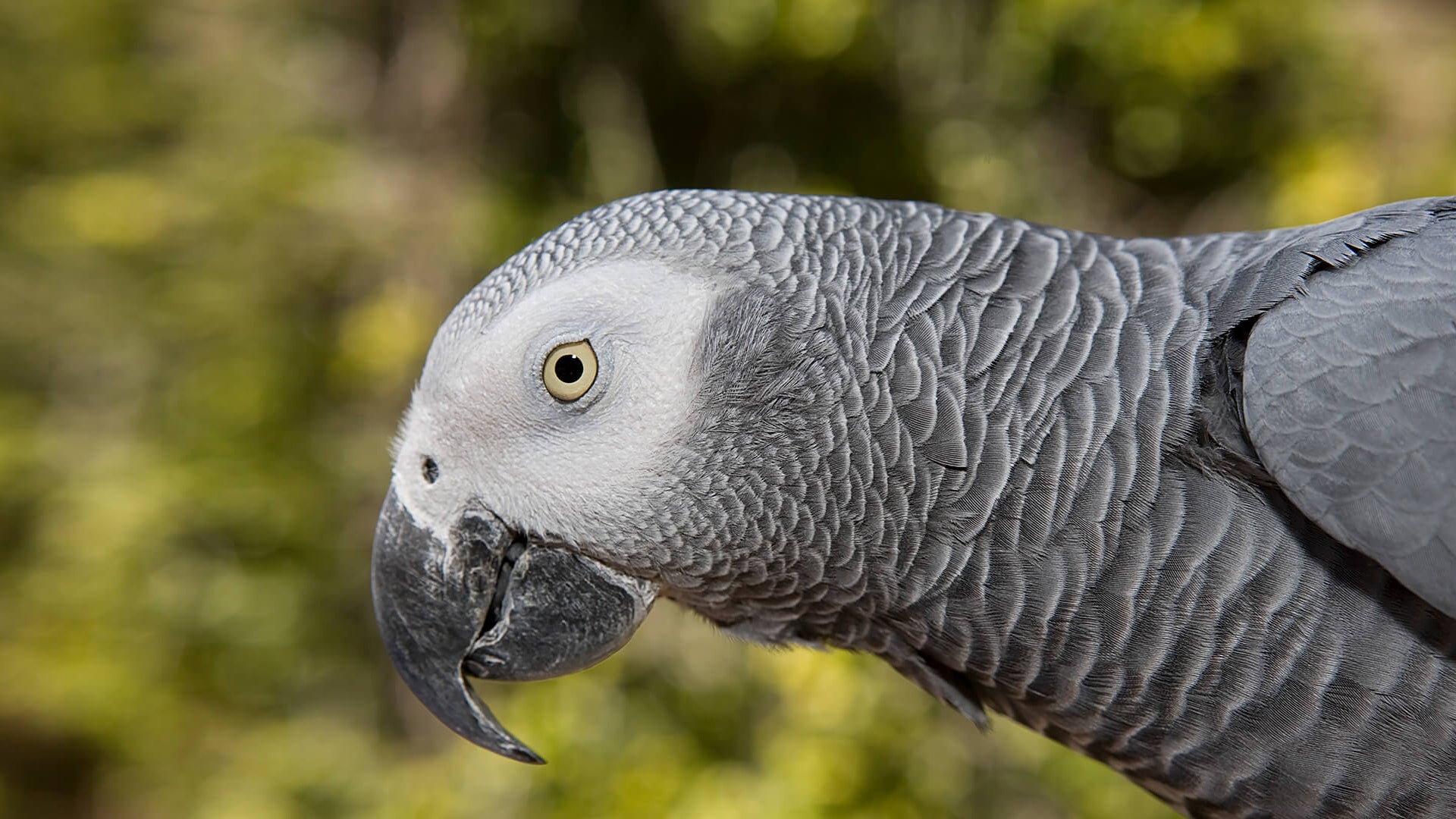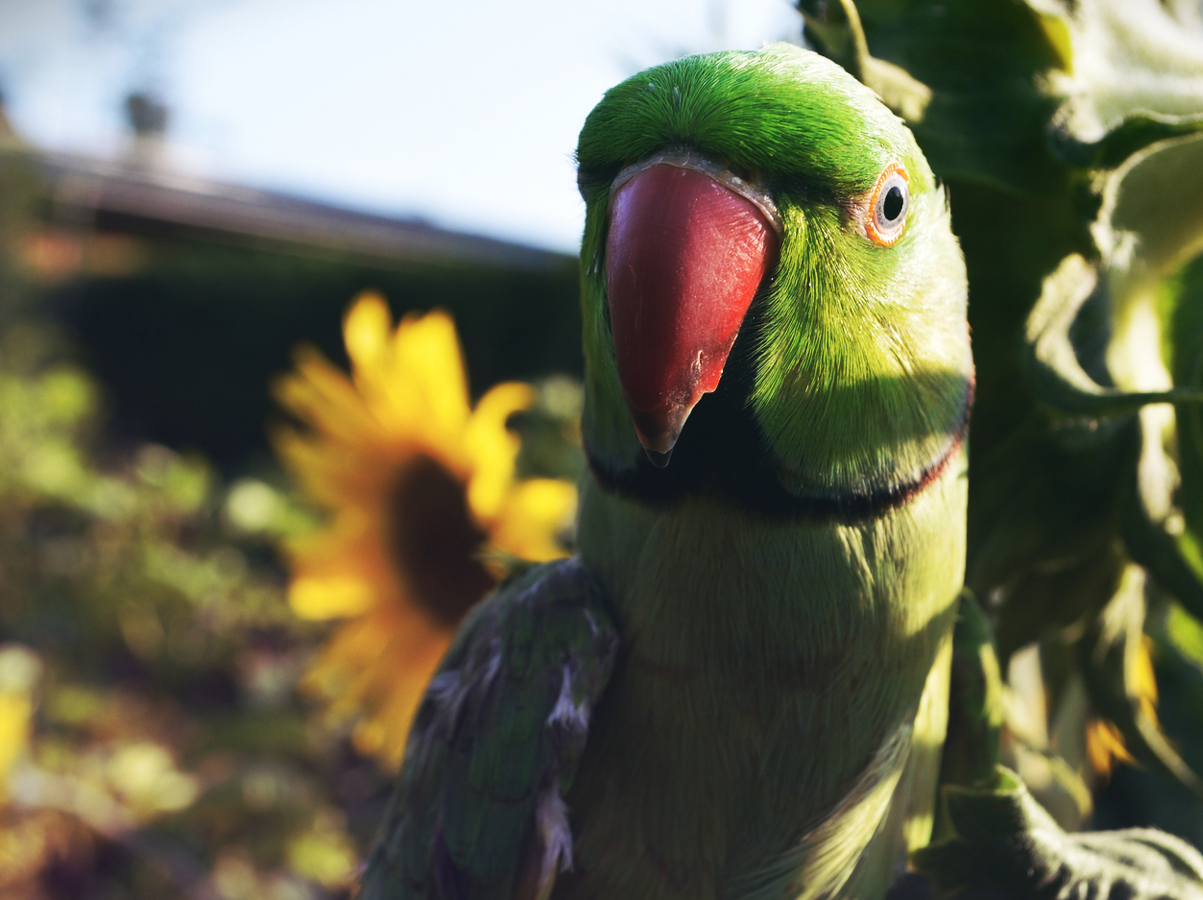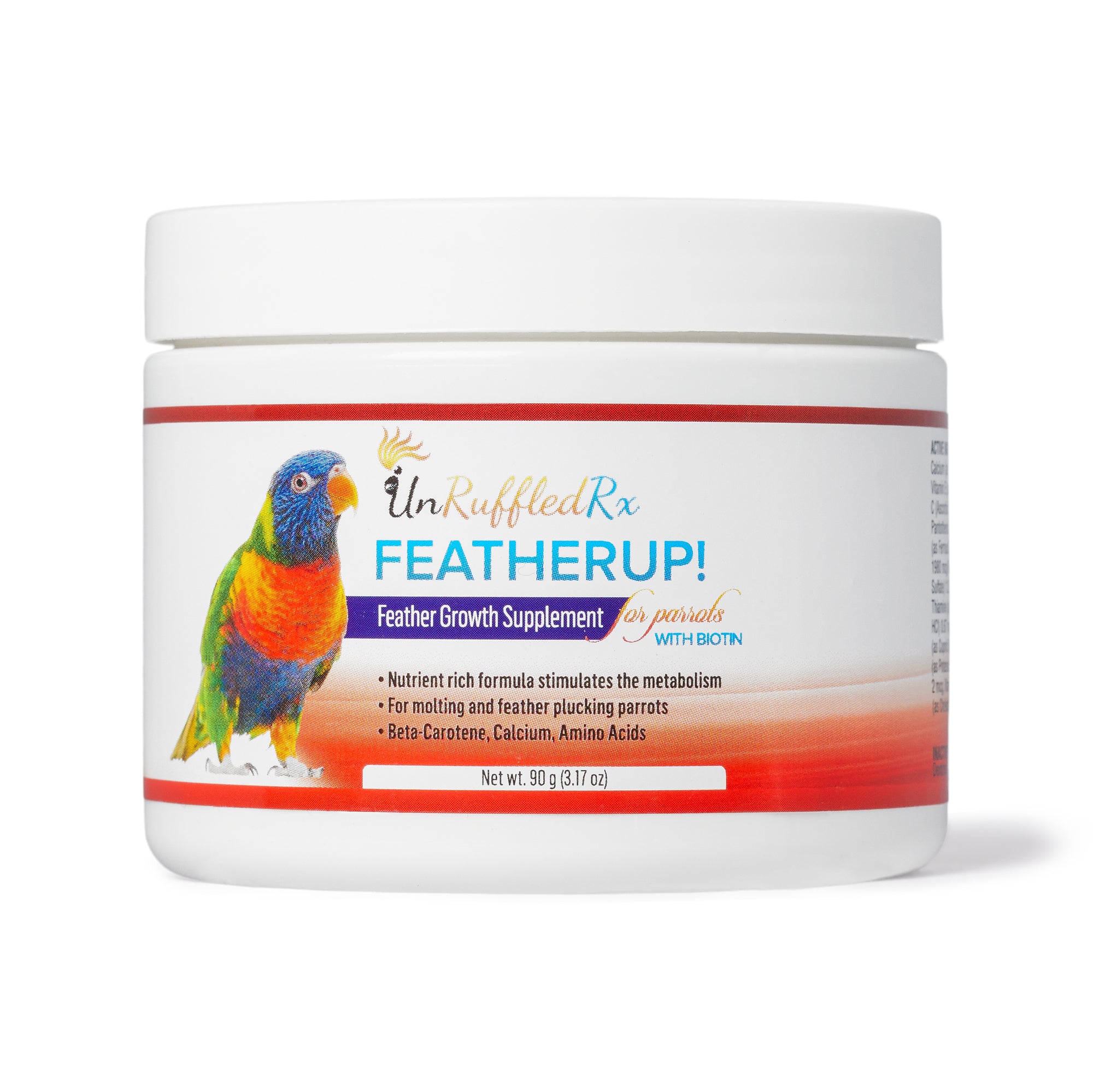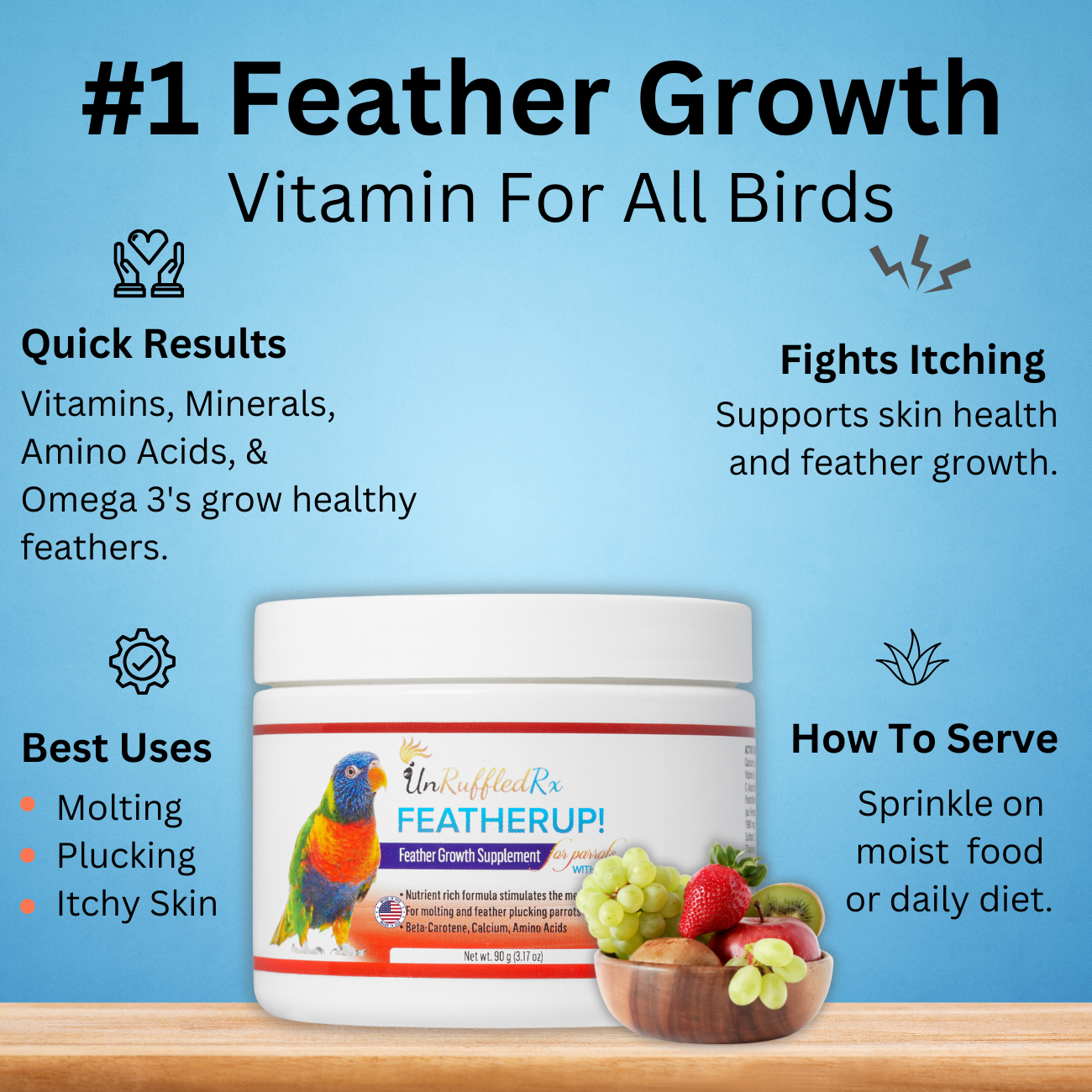Why Do Birds Bite?
Birds are very social creatures, and they love to be around other birds and their human caretakers alike. Unfortunately, there are times when birds can become extremely aggressive, and this can be painful or even dangerous if you aren’t aware of why it’s happening. Thankfully, there are many different things you can do to help curb your bird’s biting behavior!
What does it mean when birds bite you?
It’s easy to blame your bird when it bites you, but there are many different reasons why he might be nipping. Before you can determine whether your bird is biting as a form of aggression, fear, or playfulness, it’s important to understand what he’s trying to communicate.
This is where it’s important to do a time-study, a behavioral analysis method in which you closely observe your bird’s behavior and record what seems to have triggered the problem and what the bird got out of it. Over time, you can compare his behavior before and after a stimulus occurs to determine what is provoking him to bite.
If your bird is biting in an attempt to get you to back off, it’s time to step back and think about what it is about the situation that he needs reprieve from.
Fear-biting birds will often bite when they feel threatened or scared. This could be due to a number of factors, including environmental stressors such as loud noises or feeling overcrowded; physiological stressors such as illness or hunger; or behavioral stressors such as bullying by other birds. If your bird has lost trust in you, it's time to look into positive reinforcement methods to get the trust back.
Aggressive biters are trying to assert dominance over their owners or other pets in their household. We see this most often when a bird is hormonal.
Here are a few reasons why your bird may be biting: he or she is bored, you’re petting too hard, you’re petting him in an area that’s overstimulated, or his needs are not getting met. Bird's also bite when they don't feel good. And, sometimes, it's simply due to lack of training.

Do birds bite out of fear?
A scared bird may fell cornered like it has no way out. If you are standing over your bird or holding it too tightly, he may bite in an attempt to get away from you. This is why so many birds that bite have been handled roughly or kept in a cage for too long without any human interaction. They are afraid of humans and lash out when they feel trapped. Try handling your bird with more care and give him plenty of time to adjust to his new home before expecting him to be comfortable with being held all day long.
Also, take some time to learn positive reinforcement. We recommend clicker training because its a fast and force free way to train a bird that uses solely positive methods. When we know what rewards a bird will work for and use positive training methods, our birds will learn new behaviors - replacement behaviors - to get love and attention that they crave.
These positive interactions will go a long way towards rebuilding a trusting relationship with your bird.
Why is my bird suddenly aggressive?
When birds reach sexual maturity, they go through hormonal changes. Their sexual organs start to develop and they focus on finding a mate, breeding, and rearing young. This is when sexualized aggression takes place in many male birds (and some females).
Some cases of aggression in pet birds can be traced back to a problem with bonding between bird and owner. The most common case is when your bird latches onto one family member as their soul mate. This can happen for any number of reasons, and is often related to lots of petting and social interactions.
When we don't recognize hormonal behavior for what it is, it seems like the aggression suddenly comes on from out of the blue. But, in fact, its been brewing for a while.
When this happens, the bird often forms a jealous protective bond with its perceived mate and will bite other family members who compete with that person for attention.
That doesn't mean that the "perceived mate" is safe from bites, though. If the bird has staked out a perceived nesting spot it might become very territorial of that area and bite anyone that gets too close. Or, imagine the frustration of a bird that is ready to mate with its preferred human companion, but it never can happen. All of that pent up sexual frustration can turn into aggression. If your bird is hormonal we recommend that you take steps to resolve it quickly. Here's how.
How do you get a bird to stop biting?
The first step to stopping a bird from biting is to learn read and interpret your bird’s body language. This will help you know when to back away from the bird. Don't ever put an agitated or hormonal bird on your shoulder or near your face. If your bird is showing signs that it is getting worked up, stay at arms length.
Next, do a functional behavior analysis which includes a time study and an ABC analysis to find out what triggers the behavior and what maintains it. When you know the triggers, you can manipulate the environment to make sure that the bird doesn't get triggered in the future.
Third, use positive reinforcement to encourage replacement behaviors. A bird that knows what is expected of it and who trusts their owner because of positive training methods is happier and less apt to bite. Not only that, when you train your bird using positive methods you can spot bird body language faster and easier.
And, finally, learn what normal hormonal behavior is for your species of bird and take steps to minimize unnatural chronic hormonal parrot behavior.
Clicker Training for Birds
One method that has been shown to be very successful in changing the behavior of biting birds is clicker training. This method is a fun, non-aggressive way to gain your bird’s trust, reward desirable behaviors and gently discourage undesirable behaviors, including biting.
Clicker training piggy-backs off of positive reinforcement and it works surprisingly fast.
Calming Supplements for Parrots
A calming supplement such as those found in our Parrot Calming Collection can support biting birds. Our homeopathic supplements are effective in soothing minor aggression, fears and hormonal birds. Parrot Calming Formula is completely safe and non-sedating, so you don’t need to worry about overdosing your bird.
If your bird needs long-term calming treatment, alternate Parrot Calming Formula with Bird Calming Tea. Also, our UnRuffledRx Calcium, Magnesium +D3 Supplement is beneficial for birds that are in poor health or who commonly display fearful or anxious behavior. Easy to administer, this supplement is tasteless and colorless, and can be sprinkled in your bird’s water.
Why do you think your parrot bites? Let us know about your parrot biting problems and see what others say about it.
Related Posts:
5 ways to tame a fearful bird for a happier pet
Diane Burroughs, LCSW is a licensed psychotherapist trained in ABA therapy techniques. She specializes in avian anxiety disorders and is certified in Nutrition For Mental Health. Diane has written a number of bird behavior books and she offers behavior consultations. She's developed a range of UnRuffledRx Science-backed Parrot Wellness Supplies.
Diane's products have been featured in the Journal of Avian Medicine and Surgery and at Exoticscon, a conference for exotic pet veterinarians. Her bird collars & supplements are stocked in avian vet clinics and bird stores throughout the US. With over 30 years in the field of behavior, Diane has created thousands of successful individualized behavior plans that help pets thrive.
TAGS: #HowToStopABirdFromBiting #HowToStopBirdBiting
SHARING IS CARING! PLEASE SHARE ON YOUR FAVORITE SOCIAL MEDIA NOW!

